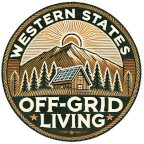Canadian solar energy company Solar Panda Corporation has acquired Zambian off-grid solar energy firm VITALITE
Category: Off-Grid Solar
Off-grid solar systems have become a cornerstone of sustainable living, offering independence, resilience, and environmental benefits. Whether you’re building a remote cabin, transitioning your home to off-grid living, or simply exploring renewable energy options, understanding the facets of solar power is essential.
What is an Off-Grid Solar System?
An off-grid solar system is a self-contained energy solution that operates independently of the traditional power grid. It uses solar panels to capture sunlight, converts it into electricity, and stores it in batteries for use day and night. Unlike grid-tied systems, these systems provide complete energy autonomy.
Key Components of Off-Grid Solar
- Solar Panels: Photovoltaic (PV) panels capture sunlight and convert it into direct current (DC) electricity. The size and efficiency of the panels determine the system’s energy generation capacity.
- Charge Controller: This device regulates the voltage and current from the solar panels to the batteries, preventing overcharging and prolonging battery life.
- Battery Storage: Batteries store the electricity generated during the day for use at night or during cloudy conditions. Lithium-ion and lead-acid batteries are common options, each with advantages and drawbacks.
- Inverter: The inverter converts stored DC electricity into alternating current (AC) electricity, which powers most household appliances.
- Backup Generator (Optional): A generator can provide additional energy during prolonged periods of low sunlight, ensuring a reliable power supply.
Benefits of These Systems
- Energy Independence: Off-grid solar systems free you from reliance on utility companies, offering stability against rising energy costs and power outages.
- Environmental Impact: Solar power reduces carbon emissions, making it a clean and sustainable energy source.
- Cost Savings: Although the initial investment can be significant, off-grid systems eliminate monthly electricity bills and provide long-term financial benefits.
- Resilience: Off-grid systems ensure power availability in remote areas or during natural disasters, offering peace of mind and self-reliance.
Challenges of Off-Grid Solar
- High Initial Costs: The upfront expense of panels, batteries, and related equipment can be a barrier for many people.
- Energy Management: Users must monitor energy consumption and adjust usage during periods of low sunlight to avoid depleting stored energy.
- System Maintenance: Regular upkeep of batteries, inverters, and panels is essential to maintain efficiency and longevity.
Designing Your System
- Energy Assessment: Start by evaluating your household energy needs. List all appliances and their energy consumption to determine your system’s capacity.
- System Sizing: Select solar panels, batteries, and inverters based on your energy requirements and available sunlight in your location.
- Installation: Work with certified installers to ensure proper setup and compliance with safety standards.
- Monitor and Optimize: Use monitoring systems to track energy generation and consumption, allowing adjustments for optimal performance.
Applications of Off-Grid Solar
- Residential Homes: Off-grid solar powers entire households, especially in rural or remote areas.
- Cabins and Tiny Homes: Compact and energy-efficient, these systems are ideal for smaller living spaces.
- Agricultural Uses: Irrigation systems, livestock shelters, and farm equipment in areas without grid access benefit greatly from solar.
- Mobile Solutions: RVs, boats, and mobile clinics often use portable solar systems for reliable energy on the move.
Innovations in Off-Grid Solar
- High-Efficiency Panels: New solar panel technologies increase energy conversion rates, reducing the number of panels needed.
- Advanced Batteries: Innovations like lithium-iron phosphate batteries offer longer lifespans and higher efficiency.
- Smart Energy Management: Systems with AI-driven controls optimize energy usage and storage, enhancing system reliability.
- Hybrid Systems: Combining solar with wind turbines or hydroelectric generators creates versatile and resilient off-grid solutions.
Is Off-Grid Solar Right for You?
Solar technology is ideal for those seeking energy independence, living in remote areas, or aiming to reduce their carbon footprint. However, it requires a willingness to invest in upfront costs, maintain systems, and adapt energy usage habits.
Conclusion
Off-grid solar systems are a powerful step toward a sustainable future. By harnessing the sun’s energy, you can achieve independence, save money, and contribute to a healthier planet. Whether you’re embarking on a homesteading adventure or looking for a reliable energy solution, this technology offers a bright and sustainable path forward.
The project is seeking to develop off-grid solar power facilities in Nigeria. The project is
More Releases from IMARC Group. India Off-Grid Solar Energy Market to Reach USD 250.2 Million
… off-grid solar power systems. These regions are increasingly adopting lead acid batteries for energy
… off-grid solar energy kit, resulting in almost $10 billion in additional income generated since
A global association for the off-grid solar energy industry, Gogla, is calling for applications from
HTF MI just released the Global Off-Grid Solar Energy Market Study, a comprehensive analysis of
Sales of off-grid solar energy kits in West Africa dropped to 1.14 million units in
Solar Panda Expands to Senegal with Off-Grid Solar Kits … Canadian renewable energy firm Solar
Sides pled guilty in Texas County Circuit Court to charges of taking almost $50,000 from
